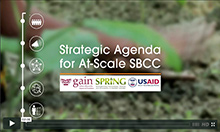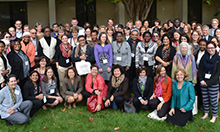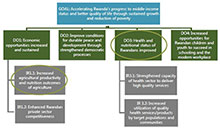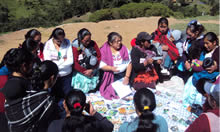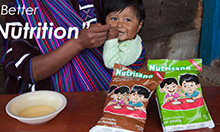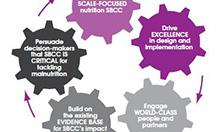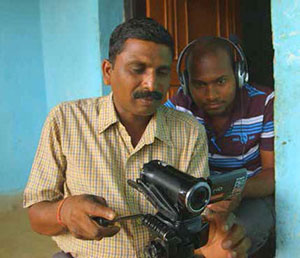
The Strategic Agenda is a blueprint for creating social and behavior change communication programs that contribute to the widespread social and individual behavior changes needed to meet broad nutrition commitments.
Building on recent global evidence that SBCC theories and approaches are effective for improving nutrition outcomes, the U.S. Agency for International Development included SBCC as a primary activity in its 2014–2025 Multi-sectoral Nutrition Strategy. USAID’s focus on SBCC presents an important opportunity for existing nutrition and SBCC institutions, projects, decision makers, practitioners, and influencers to move the Strategic Agenda forward. Working together, we can foster improvements in global nutrition by promoting and embracing the Agenda’s five action points.
Promote scale-focused nutrition SBCC
- Ensure that SBCC is an integral component of every nutrition intervention in every sector.
- Invest only in pilots with a clear potential for scale.
- Implement approaches that enable short-term behavior change and the longer-term structural changes needed for sustainability.
- Leverage resources and opportunities to build on existing systems (formal and informal).
Drive excellence in design and implementation
- Broaden formative research to include observational methods and methods that explore unconscious motivations and cognitive biases.
- Use iterative approaches, where ideas and insights are constantly tested and adapted.
- Focus on a limited number of behaviors; think of phased and cumulative interventions.
- Take a consumer or user-centered approach.
- Cut through crowded information environments to connect with users.
- Involve community members in leading and evaluating community-based programs.
Engage world-class people and partners
- Recognize and use the strengths of both the public and private sectors.
- Find and partner with unusual allies.
- Build teams of multi-disciplinary members with complementary skill sets and proven past performance.
- Learn private sector approaches to consumer insight research and design.
- Enlist the services of creative, media, and technology specialists to craft compelling interventions.
Build on the existing evidence base for SBCC’s impact on nutrition
- Explicitly state and test theoretical frameworks and program impact pathways.
- Use standard indicators to measure social change, behavior change, and outcomes.
- Align reporting requirements to include common aspects of design and implementation.
- Identify success factors for replicating or scaling up interventions.
- Compare the cost-effectiveness of approaches and communication channels, alone or in combination, at different scales.
- Conduct long-term evaluations to understand factors contributing to sustainable change.
Persuade decision makers that SBCC is critical for tackling malnutrition
- Focus time and resources on securing at-scale SBCC as a top priority for global nutrition.
- Create compelling and engaging tools that highlight the strong evidence for the efficacy of nutrition SBCC.
- Recruit SBCC champions within existing nutrition organizations and platforms.
- Approach advocacy for at-scale nutrition SBCC as a social and behavior change effort in itself, within and beyond these groups.

